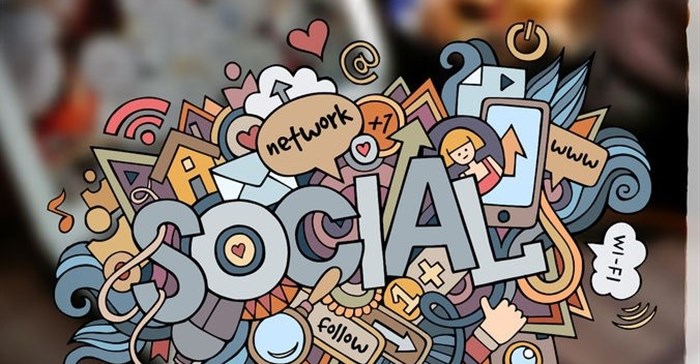On 3 January this year, prolific Twitter user Chris Hart went quiet. From May 2009 until then he had tweeted nearly 33,000 times. If he had been writing books instead, he would have written 2,566 pages or the equivalent of 10 average novels. Now that's a lot of writing. Since then, not a tweet. Nothing. Dead silence.
I’m sure that everyone in South Africa knows why. He expressed a tweeted opinion that is seen to be racist. Social media reacted and 'boom!' in three deep breaths he was suspended and what in his mind was an innocent tweet later caused the CEO of his employer Standard Bank to address the company and the entire country in an open letter as to what the bank thought of his actions, a very public slap on the wrist.
Where is Chris Hart right now? I don't have a clue, he is so far under the radar that sonar could not find him. He is to all intents and purposes gone.
This year alone, and it's only mid-February as I write this, Gareth Cliff was fired and then reinstated to Idols after a highly publicised urgent court appearance. Lewis stores have lost share value after what appeared to be gouging a poor and barely literate customer in the purchase of an overpriced washing machine. Veteran sports journalist Dan Retief’s “insensitive” tweet has shaken his world. Universities have been held to account for poor plans for student accommodation. The President of South Africa and his alleged financial allies have been held to account and created a brand new world attached to a hashtag, #Zupta, which is now a powerful meme. That’s only a massively edited list.

Each of these incidents represents a reputation crisis for a brand. Each one has damaged a commercial brand or a private brand in some way. In some cases, the damage has been catastrophic and in some cases it has merely changed or nudged the brand essence in a direction that may not be good for the brand.
While marketers are mostly focussed on the advertising ecosystem built around the social media platforms, because of the powerful and tight targeting algorithms. The question that those skeptics of social media should ask is why should this be the case. What makes social media so powerful a tool for spreading ideas?
The answer is in the connections that are created in every users personal network. Then there is the fact that the number of potential connections is the square of the number of participants in that network. So if you have a 100 friends then there's a potential of 10,000 different connections, as each of these people add their own friends to the networks it easy to see the potential.
Since the invention of the printing press, leadership and management has been accustomed to controlling the media, buying space or using influence to get space in a scarce and expensive platform either in time or column centimetres.
Social media is cheap
So cheap that in fact the cost of using it is so close to free that it makes no difference. And with the cost of the devices needed to access the internet having got to as low as $7 almost everyone can be heard, almost everyone can access everything. No amount of advertising, customer relationship or public relations budget can control the messages and ideas circulating online. That changes all the rules.
The democratisation of media online has created a free for all, amateurs not bound by codes of journalistic ethics can share absolutely anything and often this is taken at face value by a credulous audience, possibly used to a more responsible media system. But rumour turns to truth in seconds as they rush around the world at the speed of light.
Clearly, this world is regulated by the same legal structure that applies in the offline world, but practically, this is very difficult to enforce. Who in the chain of 48 retweeting a dubious story are you going to sue?
How do you operate in this world? is the obvious next question.
The answers are simple in concept but hard to implement:
You try to understand.
Understand the networks, the paths down which ideas both favourable and unfavourable will spread. It’s possible to study all of these because the one thing you do have online is persistent data.
Understand who are the main players and their stance relative to your brand.
Plan for a crisis. Expect one to suddenly appear out of nowhere and from the most unexpected quarter. Build scenarios and strategies of how to deal with them and where they are likely to appear. I’ll lay odds that no-one in Standard Bank anticipated the Chris Hart fiasco.
Listen carefully, most of what is said online can be found, analyse the data, find the hot issues, the hot people the hot conversations.
Then be ready to react any day, any time as social media operates 365/24/7.
Social media crisis can happen anytime and to any brand and it probably will. Managing your brand in this world which you cannot and don't control requires a different approach to managing brands in the broadcast era.
But manage it you must. This is not something that you can put off until tomorrow.
*Note that Bizcommunity staff and management do not necessarily share the views of its contributors - the opinions and statements expressed herein are solely those of the author.*






















































